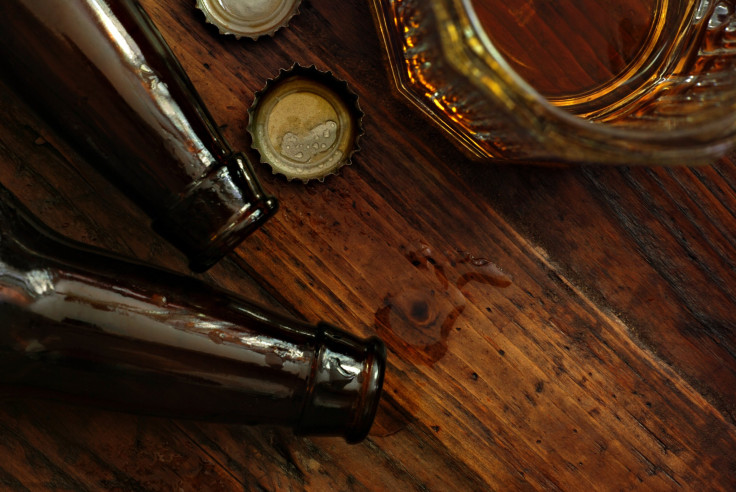Teen Binge Drinking Damages The Brain: How Partying Affects Learning And Memory Forever

Teenage years are full of trial and error, but when it comes to alcohol the after-effects may last well into adult life. Researchers from Duke University Medical Center knew how experimental teenagers could be, so they took a look into how alcohol affects their growing brains during this crucial developmental stage.
"In the eyes of the law, once people reach the age of 18, they are considered adult, but the brain continues to mature and refine all the way into the mid-20s," the study’s lead author Mary-Louise Risher, a post-doctoral researcher in the Duke Department of Psychiatry and Behavioral Sciences, said in a press release. "It's important for young people to know that when they drink heavily during this period of development, there could be changes occurring that have a lasting impact on memory and other cognitive functions."
With the legal drinking age at 21, any high school kids who drink will be taking part in underage drinking. By the time teenagers reach their 50th birthday, 35.1 percent of them have already had their first alcoholic beverage, according to the National Institute on Alcohol Abuse and Alcoholism. Underage drinking puts kids and adolescents at risk for physical and sexual assault, impaired judgment, serious injuries, brain development problems, and even death, according to the National Institutes of Health.
Risher and her research team wanted to find out what damage is actually taking place inside teenagers’ brains. The study, published in the journal Alcoholism: Clinical Experimental Research, outlined how they exposed rodents at the age equivalent to a human teenager to enough alcohol that would result in impairment. They watched the rodents grow into adulthood and found those who were exposed to alcohol grew up to have memory problems. Researchers took a closer look at what was going on inside their brains and found an abnormality in the hippocampus, where learning and memory controls are located.
They measured the long-term potentiation (LTP), which revealed the strength of brain synapses in a certain area. Learning occurs best when there’s a strong transmission of signals between synapses, and in the alcohol-treated rodents, the LTP was actually hyperactive compared to the rodents who weren’t exposed to alcohol.
"At first blush, you would think the animals would be smarter," Swartzwelder said. "But that's the opposite of what we found. And it actually does make sense, because if you produce too much LTP in one of these circuits, there is a period of time where you can't produce any more. The circuit is saturated, and the animal stops learning. For learning to be efficient, your brain needs a delicate balance of excitation and inhibition — too much in either direction and the circuits do not work optimally."
They found something else that might be a key to understanding maturity development. Individually nerves were lanky and spindly, which indicated communication problems between cells. This could indicate alcohol permanently stunts a teenager’s maturity level, according to researchers.
"Something happens during adolescent alcohol exposure that changes the way the hippocampus and other regions of the brain function and how the cells actually look — both the LTP and the dendritic spines have an immature appearance in adulthood," Swartzwelder said. "It's quite possible that alcohol disrupts the maturation process, which can affect these cognitive functions later on. That's something we are eager to explore in ongoing studies."
Source: Richer M, Fleming RL, Richer WC, Miller KM, Klein RC, and Wills T, et al. Adolescent Intermittent Alcohol Exposure: Persistence of Structural and Functional Hippocampal Abnormalities into Adulthood. Alcoholism: Clinical Experimental Research. 2015.



























